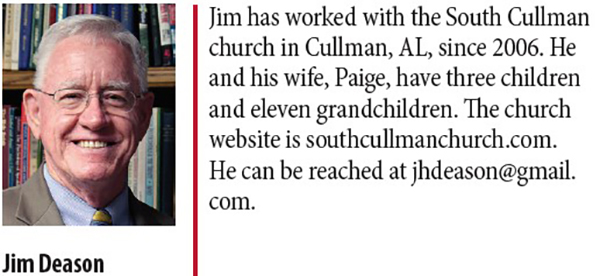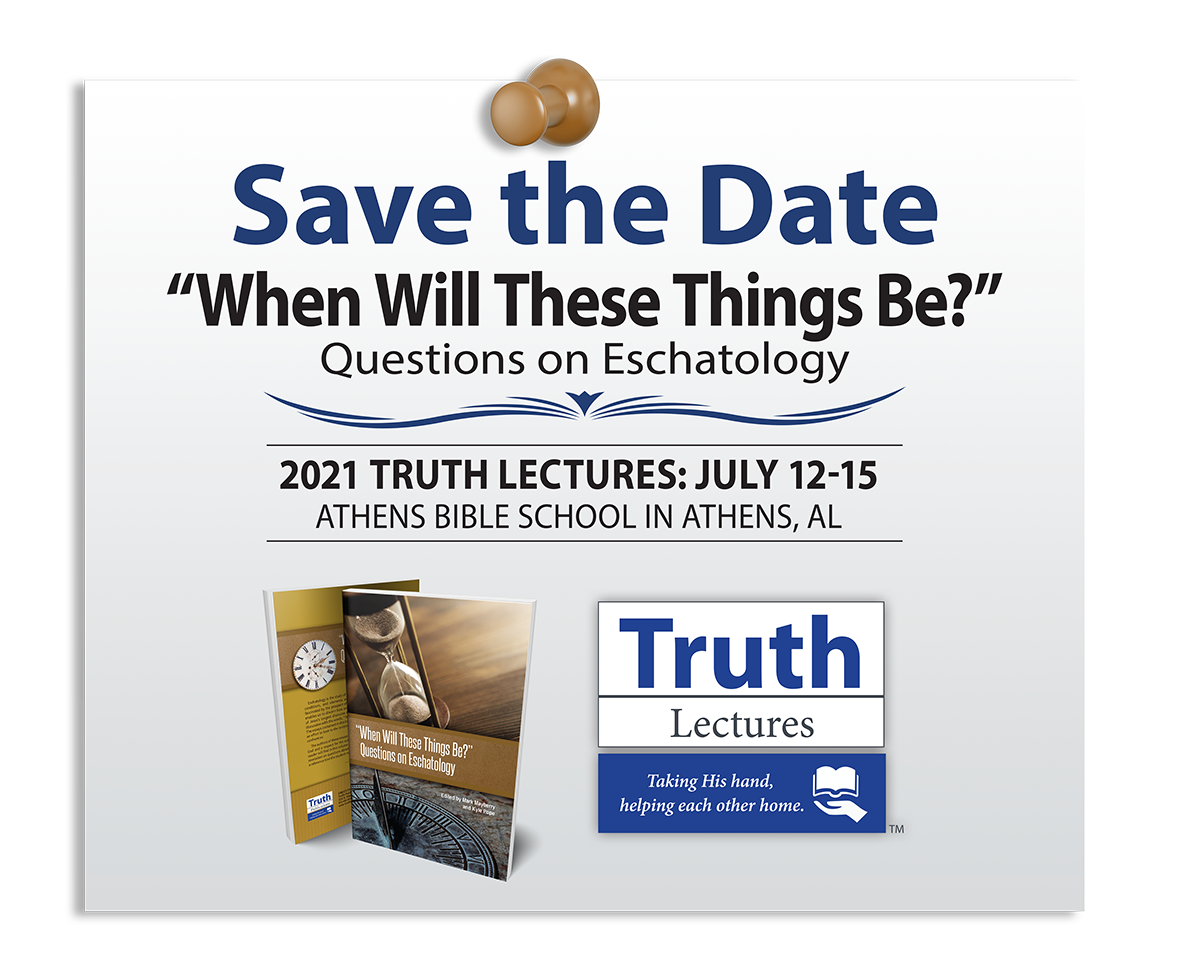
by Jim Deason
Synopsis: The soul who rejects a belief that God created all things will also struggle to believe He could bring the universe to an end. The same evidence that supports one doctrine also supports the other.
Over the last year, you have often heard someone say, “Just follow the science.” That statement contains a measure of truth. For example, with health issues, we need to “follow the science.” To maintain good health, we need to follow the instructions of our physicians and nurses. There is a myriad of other ways where that advice makes good practical sense. This is so obviously true that hardly anyone would dispute it.
Still, to be sure, we are confronted with a lot of pseudo-science. These are things that are claimed by scientists as fact and truth when they are not. Let us remember that most of the scientific powers that be—people who tell us to “just follow the science”—do not believe in God, the Bible account of creation, or the concepts of sin and redemption.
I am describing two very different worldviews. The one to which we subscribe begins with faith in God, the Bible, and judgment to come. We establish our core values from a foundation of faith. These values determine how we think, what we say, and how we live. To those of us who believe, eternal life and a home with God is in view because death is not the end.
The other worldview begins with a rejection of God and any knowledge of Him. Therefore, since God is now ruled out of the equation, evolution (and not creation) becomes the explanation for the origin of man and the universe in which we live. In the mind of someone who does not believe in God, evolution becomes a fact rather than a theory. Death is the end of personal existence, dark and foreboding. With this corrupted view of man’s beginning and end, the core values that one forms are rooted in faulty human reasoning rather than divine revelation. They are determined by the lowest level of morality that the masses of society will accept. Most modern “science” (as well as the behavior of some on the streets of America today) is founded upon this godless way of thinking. As this anti-God mentality takes control of our educational system, the secular news and entertainment media, and the halls of political power, our culture is becoming increasingly hostile to people of faith. It is impossible that there would be no clash between these two opposing worldviews.
So, living in this secular age with faith superseded by “science” in the minds of so many, how is the Christian to react in this environment? Specifically, what does evangelism look like under these conditions? We need men like the ancient sons of Issachar who “understood the times, with knowledge of what Israel should do. . .” (1 Chron. 12:32). We need to be such men as these, equipping ourselves to understand and deal with these changes in our culture and being prepared to make a defense for our hope (cf. 1 Pet. 3:15).
Let us begin by understanding that there is strong evidence for faith. One man once said that “faith is believing in spite of the evidence.” I say faith is believing because of the evidence. True science is on the side of the believer. The writer of Hebrews said, “Every house is built by someone, but the builder of all things is God” (Heb. 3:4). Driving past new construction in your community, it’s not unusual to ask, “Who is building that house?” Why? Because when you see a building being erected, you know that someone is designing and building it. Common sense dictates that design demands a designer. Even someone as simple as I am can see design in the world around me. God is the Great Designer behind the universe in which we live.
It stands to reason that such a God who would design the universe and create man would want to communicate with Him. Sacred Scripture is a record of this communication. The Bible was written by about forty different men from every walk of life, over 1500 years, under almost every conceivable human condition, in three languages, and with a wide variety of literary styles. Yet, it contains such a unity of message that it can only be explained by the fact that a single Divine Mind was behind it all, guiding the writers (1 Cor. 2:12-13; 2 Pet. 1:21). If it is really true that “All Scripture is inspired by God. . .” (2 Tim 3:16-17)—and it is—then what it records about morality, sin, personal accountability, salvation, and the judgment to come is also true.
This book records the historical narrative of Jesus, the Son of God, who entered the world by virgin birth (Matt. 1:18-25) in fulfillment of prophecy (Isa. 7:14), lived a sinless life (1 Pet. 2:21-22; Heb. 7:26), and out of His love for all mankind gave His life for the sins of the world (Isa. 53; John 3:16; Rom. 5:8). He was “declared the Son of God with power by the resurrection from the dead. . .” (Rom. 1:4). Christ’s resurrection stands today as the greatest miracle in human history and the most convincing proof of His deity. Critics may deny His resurrection, but the evidence and veracity of that grand miracle is insurmountable to any reasonable mind and stands as the cornerstone of Christian faith.
If God is real, and the Bible is His word, and Jesus is His Son, then what the Bible says about Christ’s return is also true. Jesus will come again (1 Thess. 4:13-18). When He returns, He will judge all men in righteousness (Matt. 25:31-46; Acts 17:30-31; 2 Cor. 5:10). This world will be destroyed, not by some sort of “green catastrophe” or “nuclear apocalypse,” but by divine dictate (2 Pet. 2:10-12).
The hope of the believer is beautifully expressed by the apostle Paul, who said,
Therefore, we do not lose heart, but though our outer man is decaying, yet our inner man is being renewed day by day. For momentary, light affliction is producing for us an eternal weight of glory far beyond all comparison, while we look not at the things which are seen, but at the things which are not seen; for the things which are seen are temporal, but the things which are not seen are eternal. For we know that if the earthly tent which is our house is torn down, we have a building from God, a house not made with hands, eternal in the heavens (2 Cor. 4:16-5:1).
Here’s the thing: Many people in our world, especially unbelievers, are living hopeless and miserable lives. Standing at the graveside of his brother, atheist Robert Ingersoll said, “Life is a narrow vale between the cold and barren peaks of two eternities. We strive in vain to look beyond the heights. We cry aloud, and the only answer is the echo of our wailing cry.” Friedrich Nietzsche similarly bemoaned, “Where is my home? For it do I ask and seek, and have sought, but have not found it. O eternal everywhere, O eternal nowhere, O eternal in vain.”
Good folks, that is misery! Such statements communicate hopelessness. On the other hand, the good news of Jesus Christ can offer purpose in living and hope in dying. This, I believe, is a message worth believing and worth preaching. This is the only message with the power to convert the world (Mark 16:15-16). 


